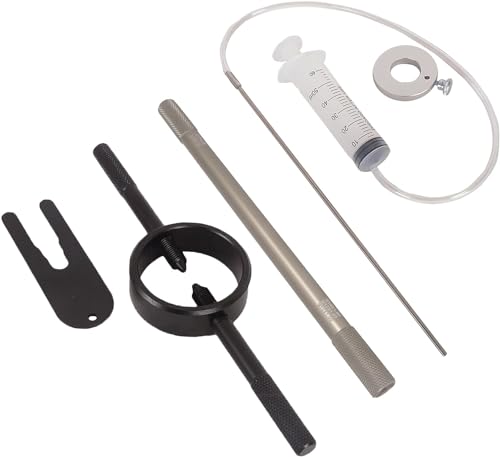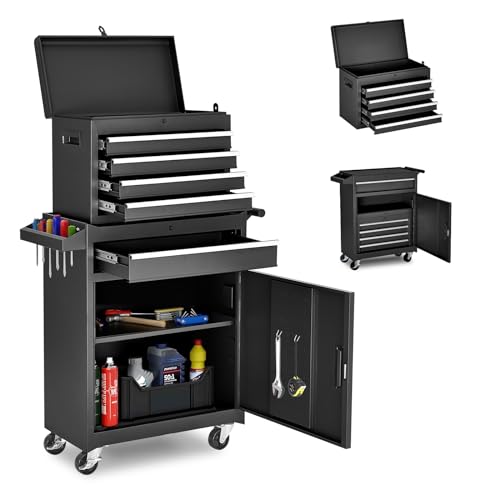
If you’re a fan of vintage tools and appreciate the charm of old-fashioned craftsmanship, then building your own old-fashioned tool box can be a fulfilling project. Not only will it give you a sense of satisfaction, but it will also provide you with a practical storage solution for your tools. Whether you’re a seasoned woodworker or a beginner, this guide will walk you through the steps of creating a beautiful, functional tool box that will stand the test of time.
Step 1: Gathering Materials
Before diving into the construction process, it’s important to gather all the necessary materials. You’ll need quality wood, such as oak or pine, for the box itself, as well as plywood for the bottom and handles. Additionally, you’ll need screws, nails, wood glue, sandpaper, a saw, and a hammer. Don’t forget to pick up a varnish or stain of your choice to protect and enhance the natural beauty of the wood.
Tip: Consider visiting local thrift stores or salvage yards for vintage hardware to add an authentic touch to your toolbox.
Step 2: Measuring and Cutting
Once you have all your materials, it’s time to start measuring and cutting the wood. Begin by determining the desired dimensions of your tool box and mark the measurements on the wood. Carefully cut the pieces using a saw or a circular saw, ensuring that the edges are straight and smooth. Take your time with this step, as accurate cuts are essential for the box to fit together properly.
Tip: Measure twice to avoid making any costly mistakes!
Step 3: Assembling the Box
With your pieces of wood cut to size, it’s time to start assembling the box. Apply wood glue to the edges of the side pieces and attach them to the front and back pieces. Secure the pieces together with screws or nails, making sure to countersink them for a neat finish. Be sure to double-check that all the corners are square before the glue dries.
Tip: Use clamps to hold the pieces in place while the glue dries for a stronger bond.
Step 4: Adding the Bottom and Handles
Once the glue has dried and the box is sturdy, you can attach the plywood bottom. Apply wood glue to the edges of the box and carefully place the plywood on top, securing it with screws or nails. To add handles, measure and mark their desired positions on the sides of the box. Use a drill to create pilot holes, then attach the handles with screws. You now have a fully functional old-fashioned tool box!
Tip: Experiment with different finishes, such as a distressed look or an antique patina, for a truly vintage aesthetic.
With your woodworking skills and creativity, you can create a beautiful old-fashioned tool box that will not only be a practical storage solution but also a timeless piece of craftsmanship. Enjoy the process and let your love for vintage tools shine through in every detail of your creation!
How to Construct a Vintage Toolbox
Building your own vintage toolbox can be a rewarding and practical project for woodworking enthusiasts. Whether you want to showcase your collection of old tools or simply need a sturdy container to store and transport your tools, constructing a vintage-style toolbox can add charm and character to your workshop.
First, gather the necessary materials. You will need a selection of hardwood boards, such as oak or walnut, for the main body of the toolbox. Choose boards that have a thickness of at least 3/4 inch for durability. Additionally, you will need a plywood sheet for the bottom of the toolbox and some brass or steel hardware for the handles, hinges, and latch.
Start by cutting the hardwood boards to the desired dimensions. Measure and mark the lengths and widths for the sides, front, back, and lid of the toolbox. Use a table saw or circular saw to make accurate cuts. Sand the edges and faces of the boards to smooth out any roughness.
Next, assemble the main body of the toolbox. Apply a strong wood glue to the edges of the boards and clamp them together. Allow the glue to dry completely before moving on to the next step. Once the glue has dried, reinforce the joints with screws or nails for added stability.
Attach the plywood sheet to the bottom of the toolbox using wood glue and screws. This will provide a solid base for your tools and prevent them from falling through. Trim any excess plywood and sand the edges to achieve a clean finish.
Install the hardware by attaching the handles to the sides of the toolbox, the hinges to the back of the lid, and the latch to the front of the toolbox. Make sure to align the hardware correctly and securely fasten them using screws or rivets.
Finally, apply a coat of varnish or paint to protect the wood and enhance the vintage look of the toolbox. Choose a finish that matches your personal style and preferences. Allow the finish to dry completely before using the toolbox.
With these steps, you can construct your own vintage toolbox that will not only serve as a functional storage solution but also showcase the timeless beauty of traditional craftsmanship. Enjoy the satisfaction of using a tool that you built with your own hands and add a touch of nostalgia to your woodworking endeavors!
Gather the Necessary Materials
Before you can start building your own old-fashioned tool box, you will need to gather all the necessary materials. Here is a list of items you will need:
Tools:
- Measuring tape
- Pencil
- Saw (hand or electric, depending on your preference)
- Hammer
- Chisels
- Screwdriver
- Clamps
- Sandpaper (various grits)
- Drill (optional)
Materials:
| Item | Quantity |
|---|---|
| 2×4 boards | 4 |
| 1×6 boards | 4 |
| 1×4 boards | 2 |
| 1×2 boards | 2 |
| Wood glue | 1 bottle |
| Nails | 1 box |
| Screws | 1 box |
| Wood stain | 1 can |
| Protective finish (varnish, lacquer, or polyurethane) | 1 can |
Once you have gathered all the necessary materials, you are ready to move on to the next step: measuring and cutting the wood for your tool box.
Measure and Cut the Wood Pieces
Before you can start building your old fashioned tool box, you will need to measure and cut the wood pieces that will make up the box. This step is crucial to ensure that all the pieces fit together properly and the box is sturdy.
Materials Needed:
To measure and cut the wood pieces for your tool box, you will need the following materials:
- Measuring tape
- Pencil
- Saw
- Safety goggles
- Sandpaper
Step 1: Measure the Dimensions
Using a measuring tape, measure the dimensions for each wood piece as per the design of your tool box. Make sure to measure accurately, as any mistakes can affect the overall stability and appearance of the finished tool box.
Step 2: Mark the Measurements
Using a pencil, mark the measurements on the wood pieces. This will serve as a guide when cutting the wood.
Step 3: Cut the Wood Pieces
Put on safety goggles to protect your eyes, then use a saw to carefully cut along the marked lines on each wood piece. Take your time and make steady cuts to ensure clean and straight edges.
Step 4: Sand the Edges
After cutting the wood pieces, use sandpaper to smooth out any rough edges or splinters. This will give your tool box a polished and professional look.
Once you have measured and cut all the wood pieces, you are ready to move on to the next step in building your old fashioned tool box.
Assemble the Toolbox
Once you have all the necessary materials and tools gathered, it’s time to begin assembling your old-fashioned toolbox. Follow these steps to put it all together:
- Start by laying out all the wooden pieces on a flat surface. Ensure that you have the two sides, the bottom, and the front and back pieces.
- Apply wood glue to the edges of the bottom piece and attach the two side pieces. Use clamps to hold them together until the glue sets.
- Next, attach the front and back pieces to the sides and bottom. Use wood glue and nails for added durability. Again, use clamps to hold the pieces together until the glue dries.
- Once the main structure is assembled, you can add additional support by attaching corner brackets to the inside corners of the toolbox. This will reinforce the joints and make the toolbox sturdier.
- After the corner brackets are in place, it’s time to add the handle. Attach the handle to the sides of the toolbox using screws or nails. Make sure it is securely fastened, as it will be used to carry the toolbox.
- Finally, you can add any additional features or decorations to personalize your toolbox. This could include painting it a different color, adding a latch or lock, or even carving your initials into the wood.
Once you have completed these steps, your old-fashioned toolbox will be ready to use. It’s a great project for both beginners and experienced woodworkers, and it provides a functional and classic storage solution for your tools.
Add the Finishing Touches
Once your tool box is assembled, it’s time to add the finishing touches to give it that old fashioned look. Start by sanding down any rough edges and corners to ensure a smooth finish. You can use sandpaper or an electric sander for this step.
Next, choose a stain or paint color that matches the classic feel you’re going for. Apply the stain or paint evenly with a brush, following the grain of the wood. Allow the first coat to dry completely, then apply a second coat if necessary for a deeper color.
After the stain or paint has dried, consider adding some decorative elements to enhance the vintage aesthetic. You can attach antique metal hardware, such as brass hinges and handles, to give your tool box an authentic look. You can also add stenciled numbers or initials to personalize the box.
Finally, apply a clear coat of varnish or polyurethane to seal the wood and protect it from moisture and wear. This will give your tool box a polished, professional finish and help it last for years to come.
With these finishing touches, your old fashioned tool box will be complete and ready to hold all your beloved tools, just like in the good old days.
FAQ
What materials are needed to build an old fashioned tool box?
You will need a sturdy wooden plank, nails, a hammer, a saw, and sandpaper.
Is it difficult to build an old fashioned tool box?
Building an old fashioned tool box can be a challenging project, especially for beginners. However, with the right tools and patience, it is definitely doable.
Are there any specific dimensions that the tool box should have?
The dimensions of the tool box can vary depending on your personal preferences and the size of the tools you plan to store. However, a typical old fashioned tool box is usually around 18 to 24 inches long, 10 to 12 inches wide, and 8 to 10 inches high.






